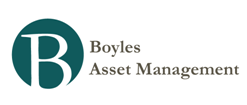Money and Finance
- C.s. Lewis On Reading Old Books
Found via Matt Brice. Excerpt from C.S. Lewis' introduction to Athanasius: On the Incarnation:There is a strange idea abroad that in every subject the ancient books should be read only by the professionals, and that the amateur should content himself...
- Nassim Taleb Quotes
From Antifragile:My parents had an account with the largest bookstore in Beirut and I would pick up books in what seemed to me unlimited quantities. There was such a difference between the shelves of the library and the narrow school material; so I realized...
- Nassim Taleb Quote
“Knowledge formation, even when theoretical, takes time, some boredom, and the freedom that comes from having another occupation, therefore allowing one to escape the journalistic-style pressure of modern publish-and-perish academia to produce cosmetic...
- Nassim Taleb Quote
“…the random element in trial and error is not quite random, if it is carried out rationally, using error as a source of information. If every trial provides you with information about what does not work, you start zooming in on a solution—so every...
- Rich Dad, Poor Dad ; Book Review
A humble review of this book by me! :) Throughout my time that I read this book, I was also testing his theories in my head wondering if I could apply them to real life situations. Some of his theories remain unclear to me, others however gave me a better...
Money and Finance
Nassim Taleb on being an autodidact
From Antifragile:
My idea was to be rigorous in the open market. This made me focus on what an intelligent antistudent needed to be: an autodidact—or a person of knowledge compared to the students called “swallowers” in Lebanese dialect, those who “swallow school material” and whose knowledge is only derived from the curriculum. The edge, I realized, isn’t in the package of what was on the official program of the baccalaureate, which everyone knew with small variations multiplying into large discrepancies in grades, but exactly what lay outside it…
Again, I wasn’t exactly an autodidact, since I did get degrees; I was rather a barbell autodidact as I studied the exact minimum necessary to pass any exam, overshooting accidentally once in a while, and only getting in trouble a few times by undershooting. But I read voraciously, wholesale, initially in the humanities, later in mathematics and science, and now in history—outside a curriculum, away from the gym machine so to speak. I figured out that whatever I selected myself I could read with more depth and more breadth—there was a match to my curiosity. And I could take advantage of what people later pathologized as Attention Deficit Hyperactive Disorder (ADHD) by using natural stimulation as a main driver to scholarship. The enterprise needed to be totally effortless in order to be worthwhile. The minute I was bored with a book or a subject I moved to another one, instead of giving up on reading altogether—when you are limited to the school material and you get bored, you have a tendency to give up and do nothing or play hooky out of discouragement. The trick is to be bored with a specific book, rather than with the act of reading. So the number of pages absorbed could grow faster than otherwise. And you find gold, so to speak, effortlessly, just as in rational but undirected trial-and-error-based research. It is exactly like options, trial and error, not getting stuck, bifurcating when necessary but keeping a sense of broad freedom and opportunism. Trial and error is freedom.
(I confess I still use that method at the time of this writing. Avoidance of boredom is the only worthy mode of action. Life otherwise is not worth living.)
- C.s. Lewis On Reading Old Books
Found via Matt Brice. Excerpt from C.S. Lewis' introduction to Athanasius: On the Incarnation:There is a strange idea abroad that in every subject the ancient books should be read only by the professionals, and that the amateur should content himself...
- Nassim Taleb Quotes
From Antifragile:My parents had an account with the largest bookstore in Beirut and I would pick up books in what seemed to me unlimited quantities. There was such a difference between the shelves of the library and the narrow school material; so I realized...
- Nassim Taleb Quote
“Knowledge formation, even when theoretical, takes time, some boredom, and the freedom that comes from having another occupation, therefore allowing one to escape the journalistic-style pressure of modern publish-and-perish academia to produce cosmetic...
- Nassim Taleb Quote
“…the random element in trial and error is not quite random, if it is carried out rationally, using error as a source of information. If every trial provides you with information about what does not work, you start zooming in on a solution—so every...
- Rich Dad, Poor Dad ; Book Review
A humble review of this book by me! :) Throughout my time that I read this book, I was also testing his theories in my head wondering if I could apply them to real life situations. Some of his theories remain unclear to me, others however gave me a better...

